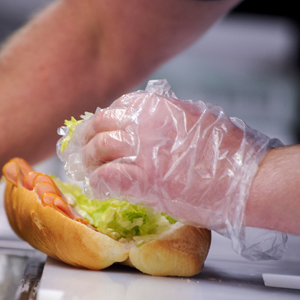
The future is looking bright for the salad and sandwich bar industry as people curb their eating habits in search of a healthier lifestyle.
How is salad business SumoSalad, as well as global sandwich chain Subway responding to this growing trend, and what strategies have they developed to ensure they continue to appeal to health conscious customers in the future?
SUMOSALAD
Society’s emphasis on healthy eating has transformed SumoSalad’s customer base of late, opening it up to a broader range of people.
“Previously we considered salad to work better in more white collar orientated demographics whereas now we are seeing it really has become accepted across the entire country,” says CEO Luke Baylis.
While females aged between 24 and 35 are the brand’s primary customer, its also gaining traction among the male population.
“Thirty-five percent of our total customers are male and we are seeing that figure increase, which is a very interesting trend because salads weren’t really considered a blokey type of meal previously,” he explains.
Baylis recognises that customers seek not only nutritious products, but also flavoursome and well-priced ones.
“What we’re noticing is that people are shifting [to healthier alternatives] on the basis that they are value for money and taste good – if a product doesn’t tick those two boxes then it doesn’t work.
“A health related product has to meet those two basic elements of consumer demand,” he explains.
Baylis believes SumoSalad is a unique player in the market by virtue of its proven track record as well as emphasis on product development.
“Our resources, geographical spread, constant focus on improving the quality and taste of our products and ability to remain at the forefront of global trends is where we feel SumoSalad’s competitive advantage lies.
“We invest in research and innovation as a part of our core business ethos, and so whatever we are doing we are leading the market – we’ve been around for 11 years, so we are really entrenched in it,” he adds.
While SumoSalad’s product range also includes wraps, pastas, soups, fruit and yoghurt and more, salads are the biggest seller.
“They comprise about 80 percent of our total sales,” Baylis says.
“We have been doing made-to-order or design-your-own salad options for years, however they are starting to get a bit of a resurgence – more people seem to be choosing them.”
He believes SumoSalad’s reputation as a trusted brand makes it a more viable option than an independent salad and sandwich bar business.
“It is very difficult for a start-up to create that same degree of competitive differentiation within a short period of time,” Baylis says.
He adds the brand is based around a tried and tested business model, meaning the chance of success is far greater.
“We’ve made a lot of mistakes along the way and we’ve learned from those mistakes – we’ve built a very strong, robust business system.
“People can learn from our mistakes as opposed to going out there and making costly mistakes themselves.”
SUBWAY
According to Ben Miles, the regional communications and PR specialist at Subway Systems Australia, there has been a shift in people’s lifestyle and food choices over the last five to 10 years.
“Australians have become more and more health conscious, especially when on the go. For Subway, that’s been great – customers love the huge choice and fresh veggies that we have on offer and we’re excited to see this trend continue to grow even more in the future,” he says.
In a bid to differentiate itself from other key players in the market, Subway plans to focus on its product offering, Miles explains.
“Freshness and quality is at the heart of everything we do. One of the best things that we offer at Subway is the ability to see your sub being made right in front of you with freshly prepared ingredients, on bread that’s been freshly baked in-store.
“Subway will continue to stand out from the crowd by offering choice, freshly made subs and being a leader in better-for-you options.”
The brand has also focused its efforts online in a bid to connect with customers. “We have a strong online presence via our website and social media channels, as well as through our online catering,” he explains.
In keeping in line with the belief that people are increasingly more health conscious, Subway’s more popular items are low in fat.
“The subs in our six grams of fat or less range include some of the most popular subs on the menu,” Miles says.
According to IBISWorld’s Sandwich Shops in Australia market report, Subway had exceeded more than 1300 stores by early 2014, so it’s safe to say most Australians are familiar with the brand.
Apart from brand recognition, what else does Subway offer people that an independent business can’t?
“The Subway franchisee model … [includes] effective systems, fantastic marketing and a strong support network,” Miles says.
“Subway has one of the lowest start-up costs in the industry, and the concept fits into many smaller locations that other brands can’t.”
He adds the majority of franchisees work within their local communities, and they adopt a hands-on approach to business.
“They work in their stores most days, making subs and managing their costs. As a team, we’re focused on building sales and profits for franchisees and our rate of franchisee reinvestment is high.
“With more than 90 percent of new stores opened by existing franchisees, the strength of our franchisees and our system speaks for itself,” Miles explains.

